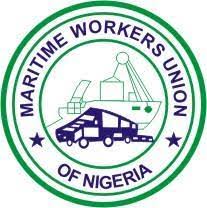The Maritime Workers Union of Nigeria (MWUN) finds itself embroiled in a pre-election controversy, threatening to disrupt operations at major ports across the country. This internal strife arises just weeks after the expiration of the previous President-General’s tenure, adding to the already complex transition period. The core issue fueling the discord is the upcoming dockworkers’ branch election, which has laid bare deep-seated divisions within the union’s ranks. A contentious zoning arrangement lies at the heart of the escalating tension, igniting protests and exacerbating factionalism among dockworkers. This power struggle threatens to destabilize the union and potentially impact port activities, raising concerns about the smooth functioning of maritime operations.
The controversy revolves around an alleged “gentleman’s agreement” regarding the presidency of the dockworkers’ branch. According to sources close to the situation, an understanding existed within the union that the next president would hail from the Tincan Chapter. This arrangement was supposedly in place before the end of the previous administration and was meant to ensure equitable representation among different chapters. However, this understanding has been challenged by the emergence of a candidate from the same chapter as the incumbent president, who is currently completing his second term. This unexpected development has sparked outrage among members who believe the presidency should rotate to the Tincan Chapter, as previously agreed upon, to maintain fairness and balance within the union.
The candidate expected to benefit from the rotational zoning arrangement is now facing pressure to withdraw from the race, a move that could further inflame tensions and potentially lead to more significant unrest. This pressure underscores the intensity of the power struggle and the deep divisions within the union. The insistence on adhering to the zoning agreement reflects a desire for equitable representation and a concern that a breach of this agreement could undermine trust and stability within the MWUN.
The situation is further complicated by allegations of external influence and manipulation. Sources suggest that powerful figures within the union are orchestrating the current crisis to advance their own agendas and consolidate power. This alleged manipulation raises questions about the integrity of the electoral process and the fairness of the competition. Concerns about transparency and accountability within the union are growing, further fueling the unrest and distrust among members.
Recognizing the potential for escalating conflict, the newly elected President-General of the MWUN, Francis Bunu, has intervened in an attempt to quell the rising tensions. In a recent statement, he issued a ban on the display of campaign materials within port terminals, jetties, oil platforms, vessels, and union offices nationwide. This measure aims to prevent the escalation of campaign rhetoric and maintain a semblance of order within the union’s operational areas. While acknowledging the members’ right to participate in the electoral process, Bunu emphasized the importance of maintaining discipline, peace, and decorum throughout the campaign period. He cautioned against campaigns of bitterness and urged all parties to uphold the principles of fair play and respect for the union’s democratic processes.
The pre-election turmoil within the MWUN highlights the challenges facing labor unions in Nigeria, particularly in managing internal power dynamics and ensuring fair representation. The controversy surrounding the dockworkers’ branch election underscores the need for transparent and accountable electoral processes within the union. The outcome of this election will significantly impact the future direction of the MWUN and its ability to effectively represent the interests of its members. It remains to be seen whether the union can successfully navigate this turbulent period and emerge stronger and more unified. The ability of the new leadership to address the underlying issues fueling the current crisis will be crucial in restoring trust and stability within the union and ensuring the continued smooth operation of Nigeria’s maritime sector.


